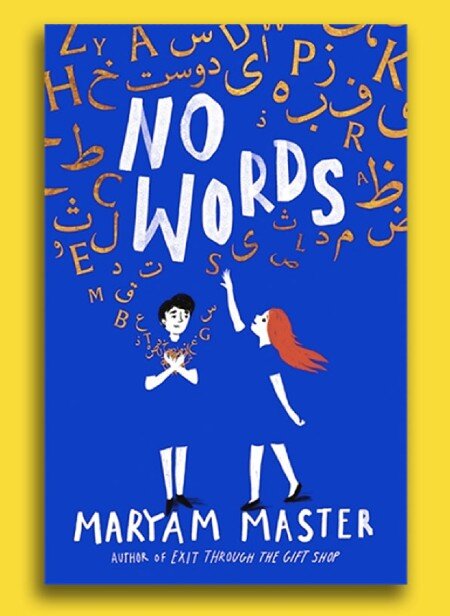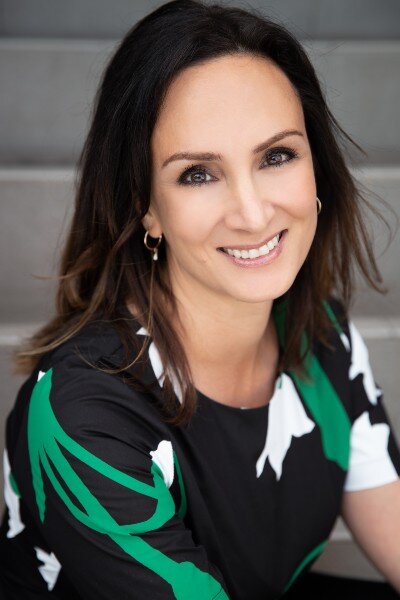Highlighting Australia
- As a proudly Australian initiative, we’re excited to showcase a collection of Australian stories, music, tributes and more.

Join activities, celebrations, study groups, spiritual empowerment and education programs for young people, and more.
Baha’i beliefs address essential spiritual themes for humanity’s collective and individual advancement. Learn more about these and more.

Baha’is see the young as the most precious treasure a community can possess. In them are the promise and guarantee of the future. Yet, in order for this promise to be realised, children need to receive spiritual nourishment, such as can be found in the children’s classes happening all around the world.

Australian author Maryam Master just released her second book. No Words tells the story of Aria, a new kid at school who doesn’t speak, and the friends who attempt to unravel the mystery of his silence.
I will always be curious about Baha’i-inspired books or Baha’i novelists but I had a particular ulterior motive to learn more about this book: No Words is written for my oldest child’s age and I know she’d find its story captivating.
Maryam graciously agreed to tell us about her new book, what inspired her to write it, and some words of encouragement for writers:
Baha’i Blog: Can you tell us a little about yourself?
I was born in Iran and like many Baha’is, escaped after the revolution. I lived briefly in Portugal, Spain and eventually settled in Australia. I’m a mother to two wonderful teenage boys, a playwright and an author and have very recently become a serious, and somewhat obsessive dog-lover.
Baha’i Blog: Could you please tell us a little about No Words?

No Words is a story that has been sitting latent in my heart and mind for decades. It’s essentially the story of my escape from Iran and settling in a new and foreign land. Of course, it’s a work of fiction but it’s the most personal piece I’ve ever written.
Aria, the protagonist, never speaks at school. Not a word. It’s like someone has taken the remote control, pointed it at his mouth and pressed the ‘mute’ button. His friends Hero and Jaz are intrigued by this mystery boy.
Where did he come from?
Where is his voice?
What’s his story?
While on their mission to uncover the truth about Aria, they also discover their own gifts and talents and the life-saving power of friendship. They discover that laughter is a medicine and that words have POWER.
No Words is a story about stories. How they connect us and weave our souls together with invisible string.
Baha’i Blog: What inspired you to write it?
I was keen to explore the concept of radical love from the perspective of a young child. A love so big, so forgiving that would allow him to forgive the oppressors and the regime that took his mother away. The refugee experience is something that I’ve always wanted to write about for obvious reasons. If we can just stop seeing each other as the ‘other’ and instead embrace our differences, then we’re on our way towards Baha’u’llah’s vision of ‘unity in diversity’ which not only brings peace to our hearts but also makes the world a much more interesting place.
Writing this book was cathartic to say the least. As I excavated the memories of my childhood, of my escape and resettlement in Australia, the tears started to flow. I wept for Aria.
The blurry line of my own reality and this fictional world I had created allowed me to freely explore the range and depth of emotions that come with living through a revolution, war and persecution.
What it means to be a kid refugee.
But also, what it means to be a kid who never loses the hope or desire to live each moment to its fullest.
It’s my hope that anyone reading No Words will be uplifted. I hope they will see that no matter what curveballs life throws at us, hope and humour will see us through. Oh, and words.
Marvellous, magical, mighty WORDS!
As Hero says about her word-nerd dad in my story:
‘He loves words the way some people love dogs. Or burgers. Or roller-coasters. He eats stories. Devours poetry and flosses his teeth with prose. If he could, he’d probably marry words.’
Baha’i Blog: Who is its target audience?
No Words, as with my previous book Exit Through the Gift Shop, is aimed at middle-grade kids. Ages 8+.
Baha’i Blog: What was something you learned in the process of creating these books? Might you have any thoughts on the power of stories to serve humanity?
The biggest thing I’ve learnt is to trust my instincts and tell the stories I want to tell.
The first book I wrote was about a 12-year-old girl (Anahita Rosalind Ghorban- Galaszczuk, yes that really is her name but you can call her Ana) who has terminal cancer and is in the last year of her life. Not exactly what would be considered a mainstream, palatable storyline for a children’s novel. But it was a story I wanted to tell. As Baha’is we think about the afterlife. We are told that death is a ‘messenger of joy’ so I never saw it as a morbid, emo-type of subject. With that book, I wanted to explore the fleeting nature of this world through a child’s eyes. My logical brain was telling me that this isn’t something that publishers are going to jump at, but as it turned out, they did.
I was astonished by just how people from all walks of life and all ages connected with it. I get letters from readers all the time and nothing brings me greater joy. Stories are truly magical. They bypass reasoning and intellect and connect us in mystical ways. That’s what I love most about what I do.
Baha’i Blog: What words of encouragement/advice might you have for other aspiring Baha’i authors?
Read, read, read.
Practice your craft.
Write about topics that interest you, not what you think people will want to read.
And always draw on the power of the Divine. My writing practice is heavily reliant on help from above. My daily routine looks a little like this:
Coffee.
Prayer & meditation. (Sorry, I know it should be the other way around but … )
Then the grind. Sitting in front of that screen until the words come. They’re not always good words. Often they’re bad. But that’s what editing is for. And sometimes you have to write a whole bunch of garbage before the good stuff begins to flow. But I feel very lucky that I have access to the spiritual realm. Everybody does. We are all guided and assisted. All we have to do is ask, to tap into the source. We have a never-ending river of creativity at our disposal. How magical is that?!
Baha’i Blog: Thank you, Maryam, for taking the time to share this with us.
You can purchase Maryam’s book from its publisher, Pan Macmillan Australia.
"*" indicates required fields

We recognise their continuing connection to land, waters and community. We pay our respects to Aboriginal and Torres Strait Islander people and their cultures; and to elders both past and present.
The views expressed in our content reflect individual perspectives and do not represent authoritative views of the Baha’i Faith.

Visit the site of the
Australian Baha’i Community
and the Baha’i Faith Worldwide
Notifications